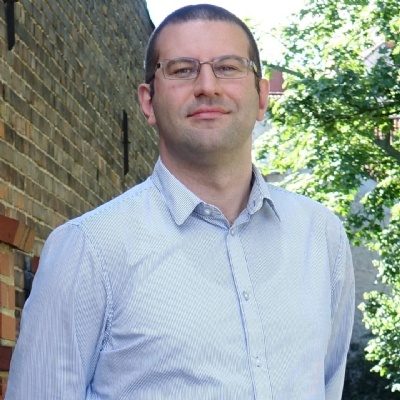Viktor Zakar

UWC Adriatic, 2000-2002
In a foggy time full of uncertainty more than twenty years ago, a sixteen-year-old from Skopje got off the minibus from Ljubljana to Mestre at a gas station on the highway. It was early -- between 8 and 10 in the morning -- on a hot, probably August day. He was carrying a large travel suitcase. Fidgeting, he looked around. He'd found himself alone in an unfamiliar environment for the first time. Behind him, you could see a hilly and rocky landscape, and in front of him were a few shops near a forest which concealed a whole new world in a village by the sea. He had to climb a few steps to get to the other side of the highway. From there, his journey took him to the dream called Duino.
The "Duino" story isn't a regular one, written on a piece of paper. Every year, the "Duino" story can be retold in two hundred different ways. "Duino" is a description of two hundred different fates, bunched up, from different corners of the world living a story that resembles a movie. Eventually, they part, but they continue to live the Duino story. Unconsciously. In each new step, with each changing circumstance. The Duino story is simple. Everyone who's lived it, knows: it was a discovery of the world, an exploration of oneself. Learning about the similarities and forgetting about the differences. Meeting humanity and understanding difference. And twenty years later, the same youngster sometimes meets with those who shared the Duino story with him. And, surprised, he confirms that it's as if time has not passed. As if they're still dreaming together.
***
The education at the United World College of the Adriatic is one of the major reasons that my personality is what it is today. My interest in foreign languages, other cultures, and history existed before Duino, too. But they grew in Duino. So, four years later I majored in translation and interpretation from the Faculty of Philology "Blazhe Koneski" in Skopje, in the French, English and Macedonian language track. The opportunity to talk about Slavic languages in schools around Duino through the public service program at the College, and the opportunity to meet the Slavic minority in the area sparked an interest in other minority languages and communities. First, I studied Upper Sorbian in Bautzen in 2004, and later i worked on both Sorbian languages in Leipzig, where I finished my PhD. Thus far, I've had the opportunity to study other minority languages, usually from the Celtic language family. I've worked in two Sorbian magazines: the culture-focused "Razgled" and the only weekly Sorbian publication, "Novi Casnik," where currently work. In the "VITAJ Language Center," I had the opportunity to support the use of Lower Sorbian in Lusatia (Germany). I'm the co-author of a German textbook for the Macedonian language, and one high-school level grammar book for Lower Sorbian. I've enabled two important collaborations at the university level: one between the International Seminar for Macedonian language, culture and literature in Ohrid (within the Philological Faculty "Blazhe Koneski") and the Institute for Sorbian Studies n Leipzig, and another one between the Institute for Security, Defense and Peace (within the Faculty of Philosophy in Skopje) and the Institute for Public Law and Environmental planning in Cottbus (within the Brandenburg Technical University Cottbus-Senftenberg). Although 30 years have passed since the unification of the two Germanies, in the east of Germany -- in Brandenburg, for example -- you can still sense the spirit of the DDR. That's strengthened by the weak economy of the Brandenburg region and the slow transition away from the coal industry.
In my free time, I ride a bike in the nearby parks and forests and I read. Apart from languages, I'm also interested in history, economics and art. Whenever possible, I eagerly meet my classmates and friends from UWC. I'm interested in the experiences of other UWC students, and love meeting them in person.
